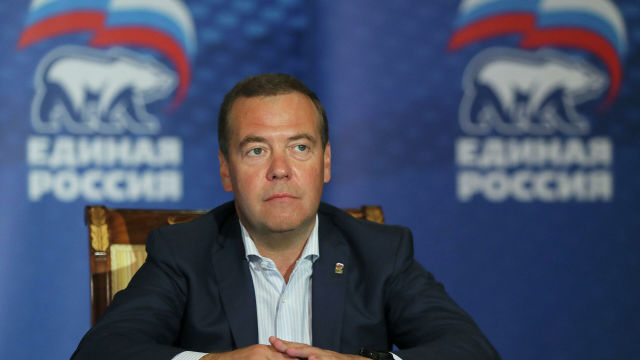Moscow. June 1. INTERFAX-Deputy Chairman of the Security Council of the Russian Federation, the head of United Russia, Dmitry Medvedev, described the West's policy towards Russia with the word "oborzeli", noting that the West had not previously gone to such a confrontation with our country.
"Unfortunately, our partners in the West have become a little "oborzeli" from their power, especially after the Warsaw Pact collapsed. It's true. After all, no one has ever tried to bring the confrontation with our country to such a level before. Yes, there were very different periods, even the Caribbean crisis was. But, nevertheless, it never occurred to anyone to cut off all communication routes, "Medvedev said in an interview with the Kommersant newspaper.
He recalled that the European Union and the United States "began to impose individual sanctions" against specific Russian citizens. "But can you imagine that individual sanctions-despite the fact that there was a colossal rejection of each other - were imposed against Khrushchev or Brezhnev, or members of the Politburo, or the leaders of the Supreme Soviet? No, of course not. Why? Because our partners were much more pragmatic, " the Deputy chairman of the Security Council stressed.
He added that even if they did not agree with the policy of the Soviet Union, the West kept the channels of communication, the ability to travel to each other. "And even the expulsion of diplomats, which is now put on stream, it was not previously practiced to such an extent. Yes, there have been similar cases, but still not to this extent, " Medvedev said.
At the same time, Medvedev is absolutely convinced that "this spiral of confrontation was not spun" by Russia. "I was a living witness and participant in all these processes. The West, even responding to a number of decisions that we had, responding to the voting procedure for the return of Crimea to the Russian Federation, could behave much more subtly, intelligently - not to destroy relations with us, and at the same time declare their concerns," the deputy chairman of the Security Council said.


